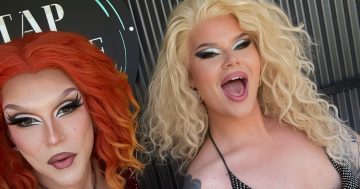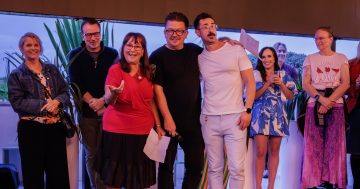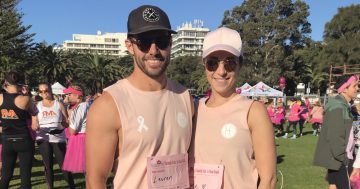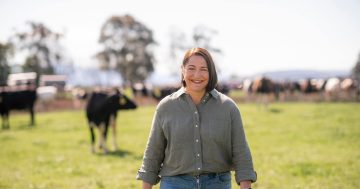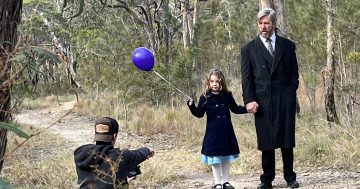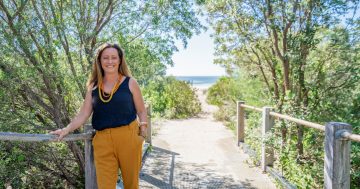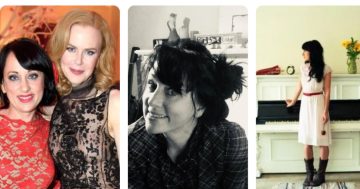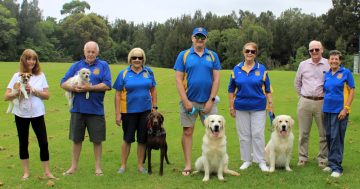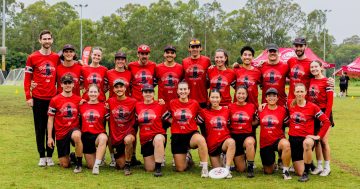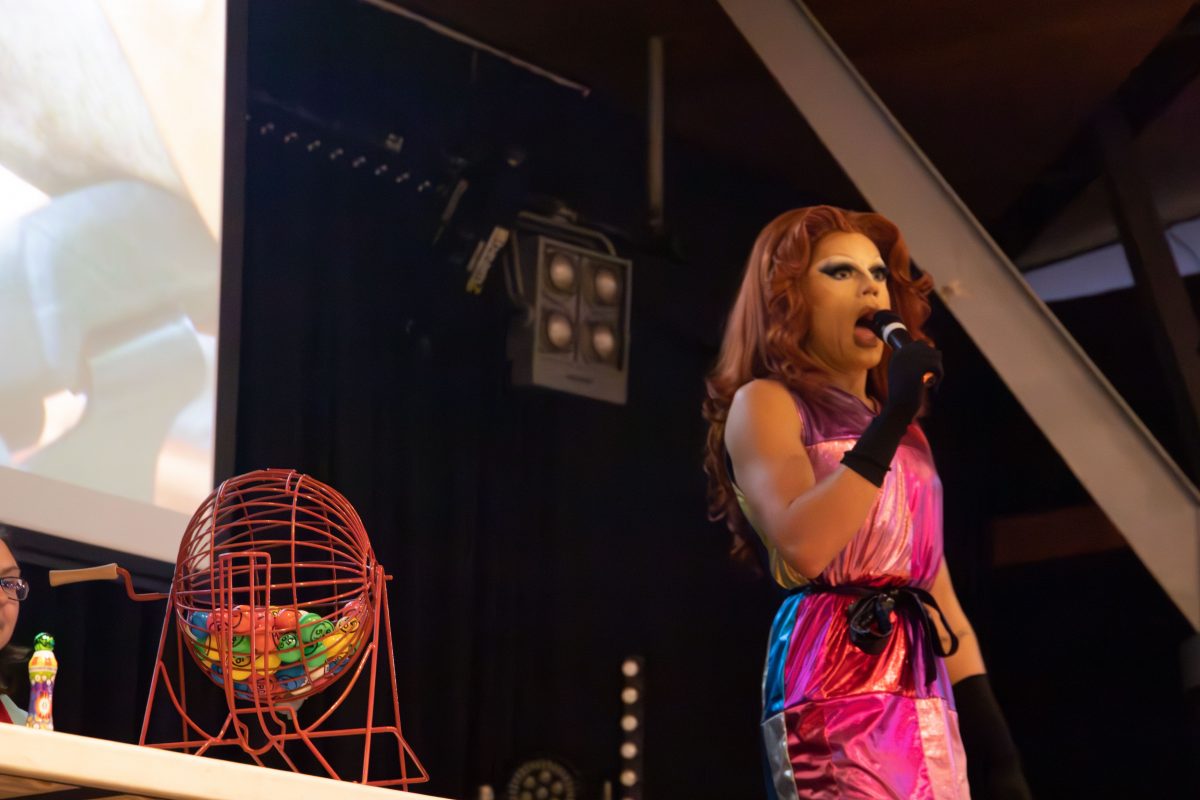
Lauren Order (Ernst Nel) hosts weekly drag bingo at UniBar on the UOW campus. Photo: River McCrossen.
Lauren Order (Ernst Nel) hit the drag scene more than two years ago.
“It brings me the most amount of joy. I wouldn’t have chosen any other thing,” she said.
“It’s the moment when you see someone smile when they look at a drag queen, whether they’re just walking past them or whether they’re performing.
“In that moment, it’s the only thing in the room.”
But performing gigs in Sydney and Wollongong has had its uncomfortable moments.
“I’ve had people touching me and physically assaulting me when I’ve been in drag,” Lauren said.
“In terms of sexually harassing me and grabbing me without my consent, there’s been a lot of instances of that as well that have made existing in drag a little bit scary.
“There is a need for us to have a lot more protections. We don’t have any kind of drag union.”
That’s why mates Alexander Oluk and Isabella Phillips-Bohane teamed up to form the Illawarra-based Drag Rights Advocacy Group (DRAG).
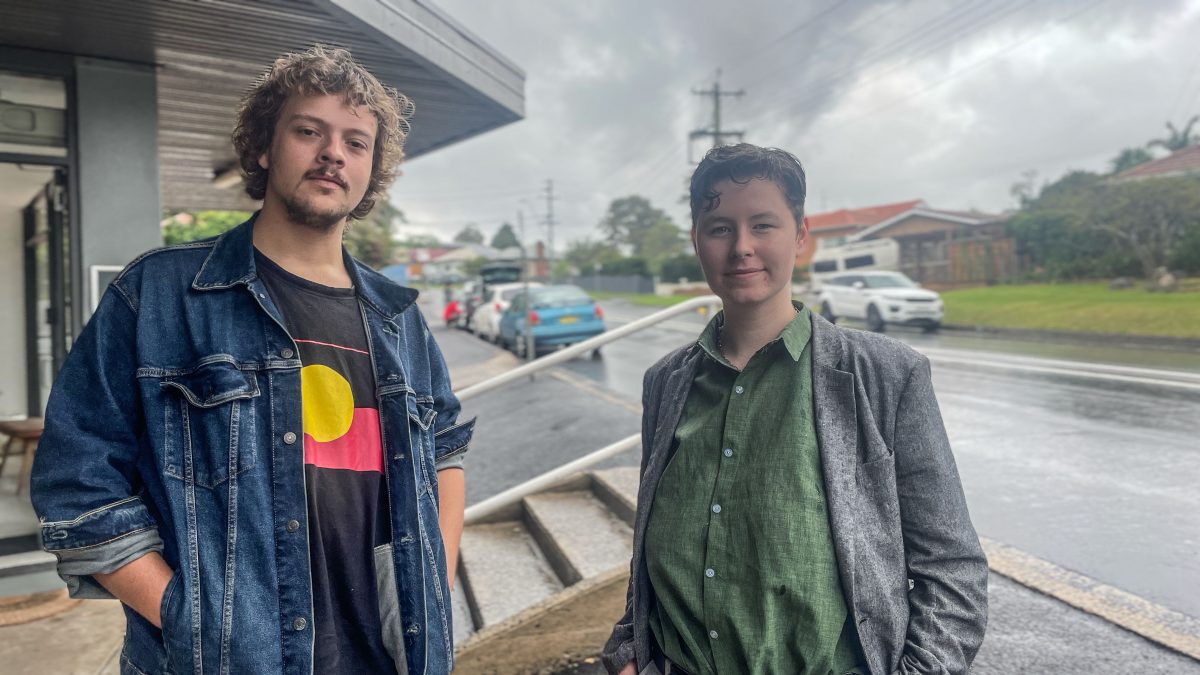
Organisers Alexander Oluk and Isabella Phillips-Bohane are keen to give drag performers a voice. Photo: River McCrossen.
“In my house, I live with two drag performers and my involvement with the Allsorts Queer Collective at beautiful UOW (Wollongong University) has made me know even more,” Mr Oluk said.
“I get reports from quite a few people about significant issues around work health and safety concerns, about not being paid for weeks and about, even in some cases, even more profound safety concerns, especially around sexual harassment and abuse at shows.”
Mr Oluk said performers faced unique issues that called for a drag-specific association.
“There is a very important angle of queerphobia and transphobia at gigs that we need to look at and address,” he said. “Part of that is, in the heightened environment of a drag show, some audience members are not respecting consent and people going beyond the line and making drag performers feel unsafe.
“With MEAA (Media, Entertainment and Arts Alliance), it’s a bunch of smaller unions affiliated to it. So, you’ve got the musicians union and we’ve got Equity, but I think drag sits at a crossroads where it’s not fully addressed by either union.”
While the group is still finding its groove, Phillips-Bohane – who is also a drag king and uses he/him pronouns out of drag – said it could give a leg-up to less-experienced performers.
“It’d be really good to strengthen my connection to my fellow performers,” he said.
“I have a catalogue in my head of what kind of people to expect at these venues, but if you’re a young performer you don’t have any of this information.
“That’s why I feel like it’s really important to help younger drag performers, particularly with an association like this, to make sure that information isn’t just limited to older performers.”
Lauren said a group like DRAG could create a better understanding of her work.
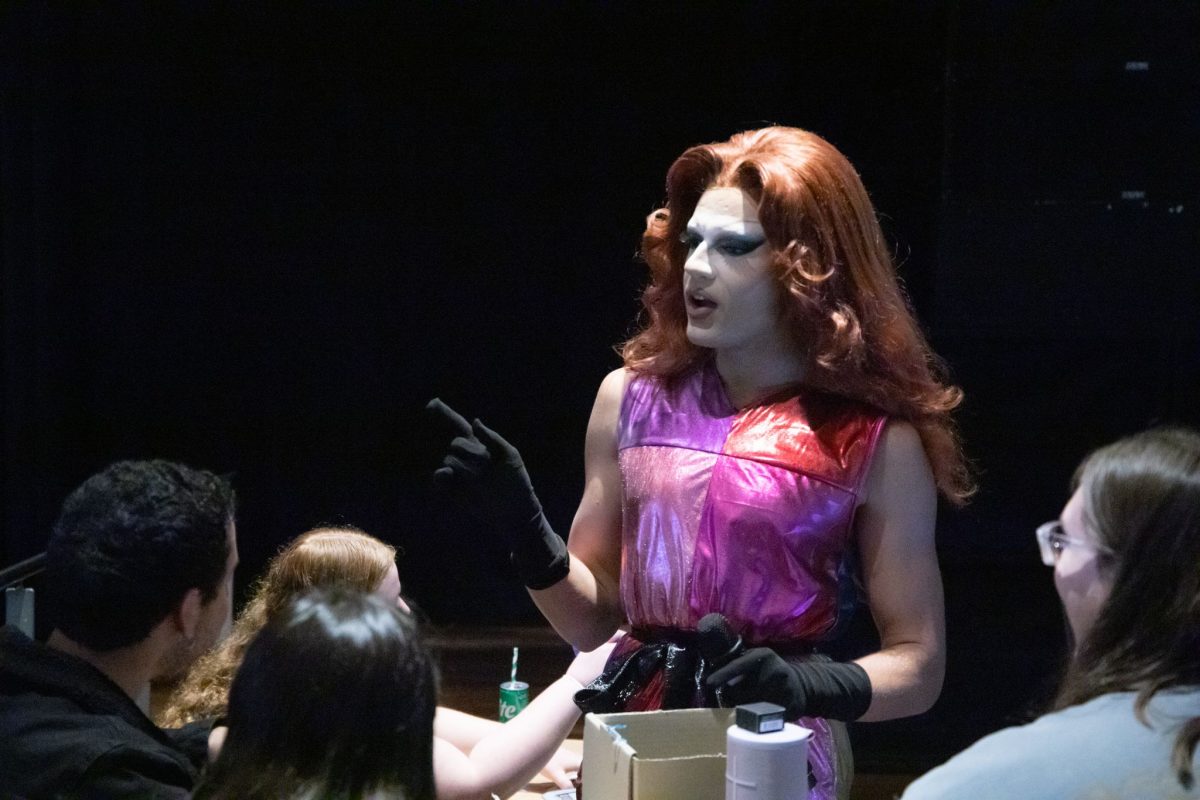
Lauren Order (Ernst Nel) says an organisation representing drag performers could create major change. Photo: River McCrossen.
“It would be a very radical change in the industry as I see it only bringing good things, or at least good conversations between drag performers and venues that book us,” she said.
“It’s not a fun and silly adventure that we find ourselves doing every week. It is the way that we survive, it’s the way that I pay rent, it’s the way that I buy my groceries.
“If we aren’t able to have our means of survival at least understood or respected, then I think we are in trouble. So, hopefully, it does something towards that.”
At this stage, the group is surveying members and performers to gauge its direction. While a majority of responses so far have been from Sydney and Wollongong, Mr Oluk said there were no geographic limits on membership.









